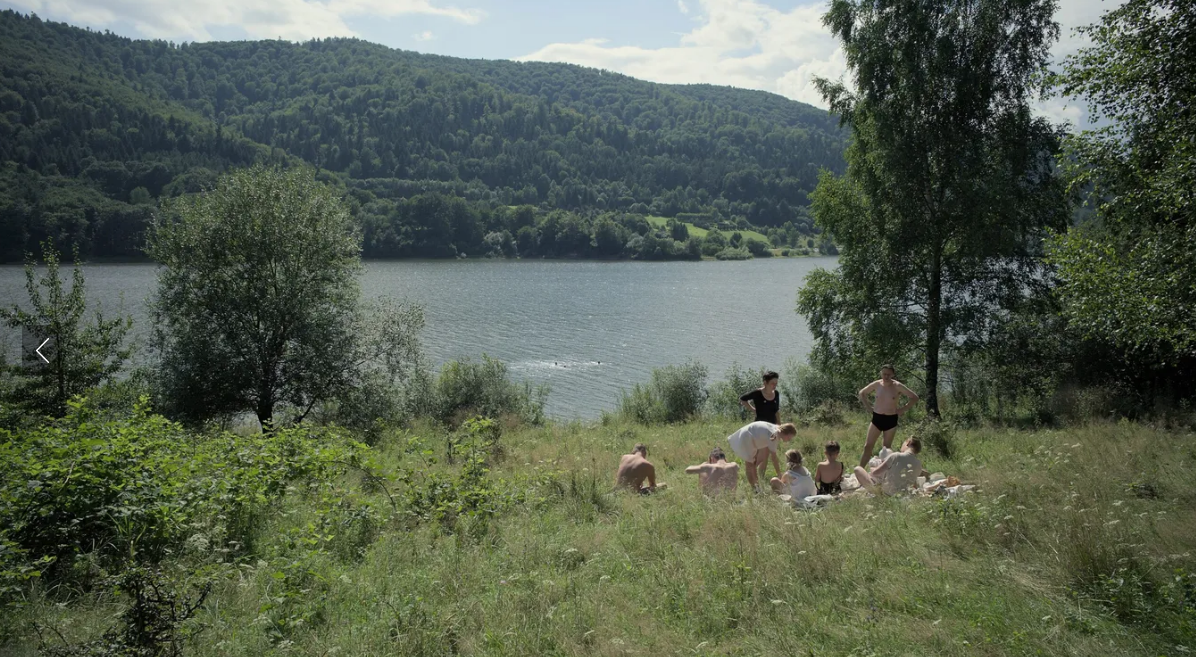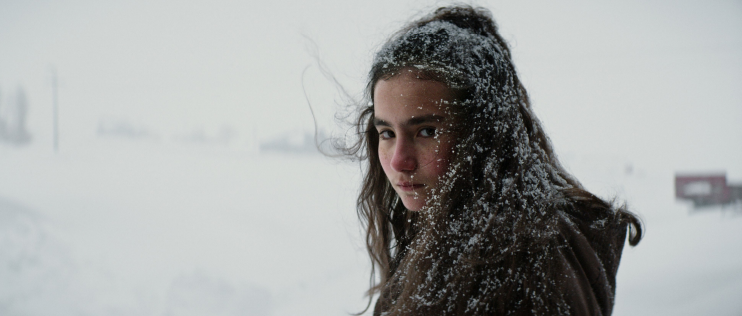Elisa Giudici reporting from Cannes
 THE ZONE OF INTEREST
THE ZONE OF INTEREST
If the Palme d'Or goes to a movie that pushes the boundaries of cinema as artistic expression, director Jonathan Glazer will have virtually zero competition. It is quite a rare moment in which, as a spectator, you realize that you are witnessing a true cinematic original. Making a movie about the Holocaust that feels groundbreaking is especially challenging given the plethora of films that have addressed and educated the world on the harrowing topic.
In Glazer's adaptation of Martin Amid’s The Zone of Interest, not a single actor's face is shown in close-up for more than a couple of seconds...
It is rather difficult to identify protagonists, per se, unless it is the married couple played by Sandra Hüller and Christian Friedell. Their faces are also rarely shown, and from strange angles when they are. Characters are often far from the camera, in compositions that resemble a series of domestic tableaux of a happy German family. The camera remains fixed, unmoved, while parents and children eat dinner or play by the river. Only the smallest details are off, but they are crucial to evoke the monstrosities just beyond the wall at the end of the garden. The garden is at the house of a young, ambitious SS member who wants to make Auschwitz a jewel and an example of efficiency and organization.
There are glimpses of familiar life and a couple of serious conversations between the husband and wife. These conversations relate to an unplanned separation, due to his work. With the most distressing score composed by Mica Levi, Glazer creates an austere movie, where no prisoners are shown, and the usual visual symbols associated with concentration camps are nowhere to be seen. In the final sequences, Glazer uses the same sparse approach to show how Rudolph Höss (Christian Friedel) and his peers left behind distinctive, distressing genius loci. In docu footage Glazer avoids showing concentration camps once again, but follows new routines. Workers silently clean the windows and floors of a museum before it opens to the public. Such a mundane, ordinary process. The Zone of Interest has already revealed to us that no matter how small a gesture may seem, it may in the end be a crucial piece of hellish image or a small step in order to never forget.
 ABOUT DRY GRASSES
ABOUT DRY GRASSES
Another strong contender for the Palm d’Or is Turkish director Nuri Bilge Ceylan. About Dry Grasses is one of the strongest entries in competition. If the jury leans more towards traditional tastes, it could well be the frontrunner. Ceylan is known for his very long movies, but his is the only marathon movie screened thus far that completely justifies its length. Though it takes time for the audience to gain an understanding of the deep emotions and reasoning behind the actions, in retrospect, it is evident that Ceylan has not wasted a single second. We are in a familiar place: a small village geographically and culturally far away from Istanbul, in the rural, poorest part of the country. The place is short on seasons, too; snowy stormy winters transition in a snap to summer greenery, and then back to winter. Taking advantage of this dilated sense of time is a perfect move for Ceylan's search for transcendence.
The protagonist of About Dry Grass is Samet (Deniz Celiloğlu) an elementary school teacher. He has lost his spark, while his favorite student Sevin (Ece Bağcı) still displays it in abundance. His yearning for what she represents, and her curiosity towards her cynical yet brilliant teacher lead to some concern about the professor's behavior. A rumor breaks the balance, but it does not stop the movie from looking inside a grown-up man's vague unhappiness about his life -- he cannot pinpoint what he lacks. There is a superb shot right in the middle of the movie that powerfully conveys how relationships are built by circumstance, chance, and attraction. The audience was silent, blown away by the sudden intensity of the moment. The teacher is having dinner with a colleague who lost her leg in a terrorist attack. She seems to be interested in the teacher's friend, but he is silently pushing the situation to be seen himself. After a long dinner, she finally sees him, or, better yet, makes him feel seen. Ceylan switches from his usual medium-range shot to a close-up of the eyes of the two characters. You can see a minor but crucial shift in the relationship.
[spoiler] This sequence alone is prize-worthy, and it's followed by a breaking of the fourth wall into sets, the movie backstage, before we're back again inside the apartment and the movie at hand. And What if I say that this isn't even the most impressive sequence or shot in the movie!?
That honor belongs to the final shot, which accompanies a revealing voiceover about the teacher's pupil. We see her, still, her dark hair covered in snow, looking into the camera. In Michel Gondry’s The Book of Solutions (playing Directors Fortnight in Cannes) the protagonist says that some scenes are so powerful they do not need a voice-over to explain them. However, Ceylan is telling such an uncomfortable truth about the dry grasses of the title (they refer to our adult selves) the voiceover is more than welcome. In a way, this ending feels like a pessimistic answer to Elio's father's speech in Call Me by Your Name. Growing up is a drying up of one's emotions, discovering yourself as a desert in adulthood. [/spoiler]
For Ceylan, this sad process is unavoidable, even for people with a real spark of vitality, like his young student. Recognizing this human condition is perhaps the most challenging thing a person faces in life. Ceylan manages to do it in one movie, even if it is 197 minutes long.